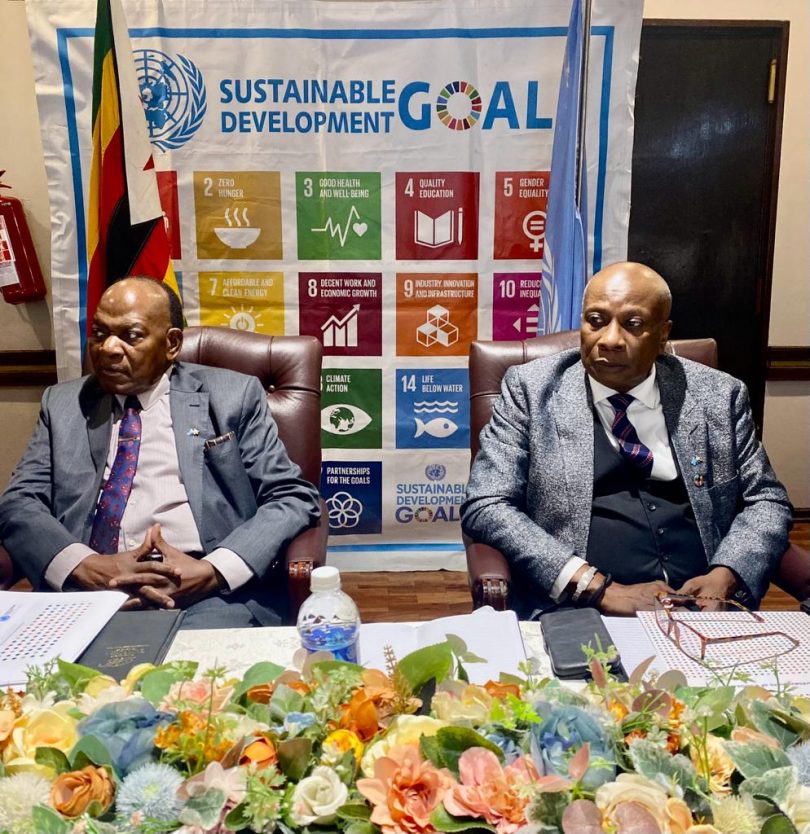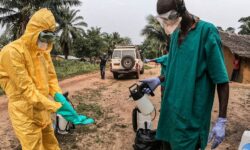
The Zimbabwe UN Sustainable Development Cooperation Framework (ZUNSDCF) Steering Committee and stakeholders, led by Dr Misheck JM Sibanda, Chief Secretary to the President and Cabinet, and Mr Edward Kallon, UN Resident and Humanitarian Coordinator, reviewed the development results of the 2022-2026 ZUNSDCF and endorsed plans for 2023.
The ZUNSDCF implemented several projects and programmes amounting to US$524 million in 2022, with a focus on reaching marginalized populations such as persons with disabilities, migrants, refugees, children, youths, and rural farmers.
The ZUNSDCF prioritized four strategic areas agreed with the Government of Zimbabwe: people-centred equitable, human development and well-being; environment protection, climatic resilience, and natural resource management; economic transformation, equitable and inclusive growth; and accountable, equitable and inclusive governance.
Mr Edward Kallon, the UN Resident and Humanitarian Coordinator, expressed gratitude to the donor community in Zimbabwe for supporting the first year of implementing the ZUNSDCF with an estimated US$544 million.
Over 100 senior representatives from Government, Development Partners, Civil Society, Private Sector, Youth Groups, Women’s movement, Organizations of Persons with Disabilities, and the media attended the Steering Committee and stakeholders meeting.
The Government of Zimbabwe and the United Nations share a commitment to inclusive participation and reaching the people typically left behind. The stakeholders reviewed and assessed existing strategies under the ZUNSDCF and agreed to focus on creating an enabling environment that promotes human development, climate resilience, natural resources management, and sustainable food systems, and economic transformation, equitable and inclusive growth in 2023.
They also agreed to address structural challenges related to extreme poverty, exclusion, corruption, discrimination, adherence to the rule of law, and violation of human rights.
Further, they aim to strengthen government and partners’ capacities at national and sub-national levels to plan and deliver transparently and accountably quality, evidence-based, and equitable basic public goods and services, implement climate change mitigation and adaptation interventions, and build long-term resilience, especially for the furthest left behind.
Lastly, they aim to empower communities, especially the most vulnerable and the furthest behind, to demand their rights and meet their responsibilities and promote dialogue and citizen engagement.
The ZUNSDCF has a five-year programme cycle until 2026 and is fully aligned with the National Development Strategy One, with a development finance portfolio of US$2.8 billion to be mobilized to support national development issues.
Source: UN









